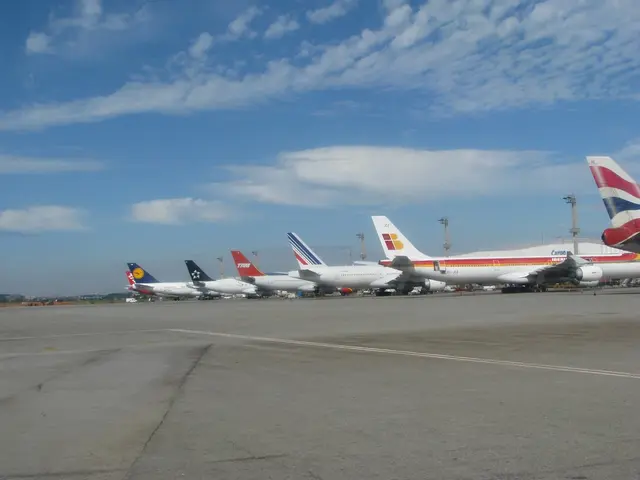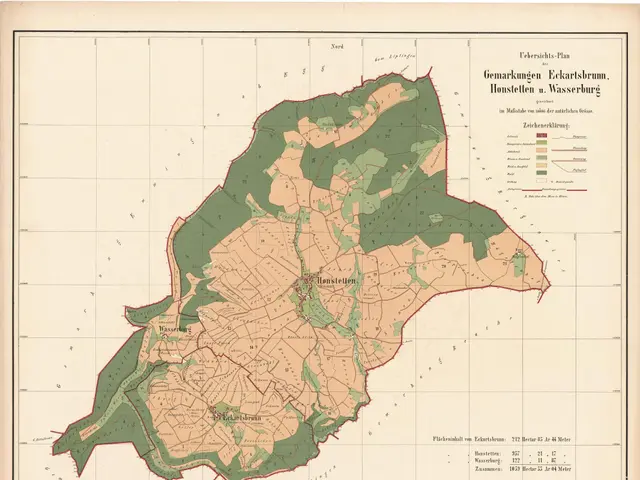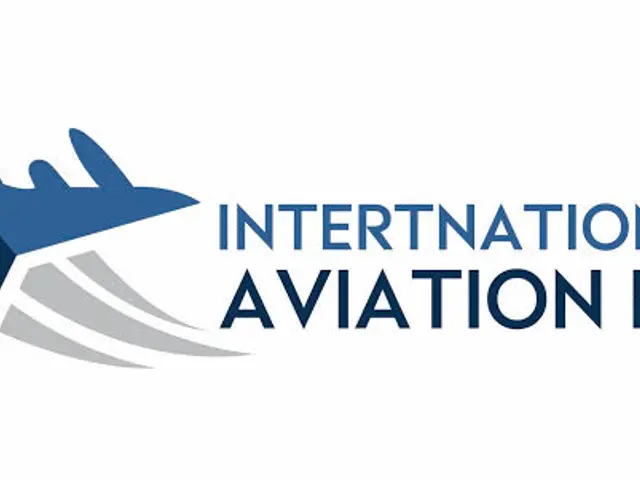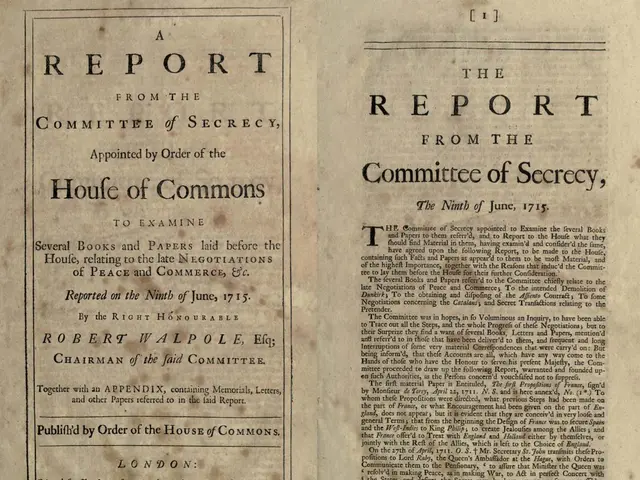Intensified OC Transpo measures against fare-dodging sparks backlash from proponents of free public transport
Take a Ride Through the Capitals Controversial Transit Debates
In the heart of Canada's capital, a heated discussion ensues, pitting an OC Transpo crackdown on fare beaters against advocates arguing that the system unfairly penalizes low-income residents.
Recently, OC Transpo unveiled a report highlighting fare evasion levels and their approach to enforcing payment across the city. With a modest troupe of 12 fare enforcement officers, the fine for skipping the fare stands at a hefty $260. In the year 2024 alone, more than 4,300 tickets were issued on buses and stations, with just over 59% left unpaid. Despite this, generated revenues surpassed the $350,000 mark.
"Transit fare income forms a fundamental part of Ottawa's transit funding," the report stated, emphasizing the necessity for fare compliance to maintain a reliable system. According to staff projections, the ongoing fare enforcement initiatives will bolster the revenue stream by reducing evasion, deterring violence against operators, and enhancing riders' overall safety while using transit.
Yet, facing a staggering $120 million budget shortfall in 2025, OC Transpo is stepping up their enforcement game, anticipating over $1 million in revenue from fines in the following year. The enforcement budget, aimed at deterring violations and securing the system, is capped at around $1.25 million for 2025.
Stittsville Coun. Glen Gower, chair of the transit committee, defends the new measures, asserting, "We're trying to ensure that people pay the fare when boarding a bus or the train." However, Marie Nigro of "Free Transit Ottawa" questions whether the hiked fares are justified given the ongoing service cuts that naturally nurture a sense of disregard among some riders.
Although the agency is set to retire 27 bus routes in April 2027 and replace 15 with others, as part of the "A New Way to Bus" network, Nigro fears that the city is failing to consider the strained financial circumstances of its residents, pushing many toward fare evasion due to affordability issues.
Nigro views the substantial fines as an added hardship for low-income citizens, suggestively commenting, "If you can't spare $4, you surely won't be able to afford $260." To curb fare evasion, Nigro advocates providing a transit system that reduces the need for evasion and promotes pride among users.
"Free Transit Ottawa," a group of activists championing the significance of public transit in combating climate change and promoting social justice, suggests abolishing fares entirely and financing the system through progressive taxation, as with public education, medical care, fire services, roads, and sidewalks.
Various reduced-fare programs offered by the city, including U-Pass partnerships with universities, EquiPass for low-income individuals, community, and access passes, as well as free transit for newcomers and refugees, aim to make transit more affordable for those struggling to pay the fare.
CCSA Vice-President Ana Clara Miranda Guimaraes echoed concerns about student affordability, stating that constant fare hikes would only push students to evade fares as they struggle under the weight of housing, education, and increased transit costs.
Fare inspectors possess the discretion to hand out either tickets or warnings, according to Coun. Glen Gower, who also highlighted the improved safety offered by the increased presence of fare enforcement officers. These officers also extend aid to riders facing emergencies or overdoses, underscoring the dual role they play in deterring evasion and providing support to transit riders.
However, critics argue that stricter enforcement could exacerbate socioeconomic disparities without parallel support systems in place, such as sliding-scale fares, reducing evasion through proactive measures instead of punitive ones. Heavy investment in enforcement also risks diverting funds from service improvements or community outreach initiatives, mirroring concerns about over-reliance on punitive public safety tools in various policy arenas.
- The debate about fare evasion in Ottawa's transit system involves questions about justice, as advocates argue that harsh fines disproportionately affect low-income residents.
- Research and deterring fare evasion are at the forefront of OC Transpo's approach, which was outlined in a recent report on fare evasion levels across the city.
- Science and climate-change are at the heart of "Free Transit Ottawa's" call for an entirely fare-free system, to be funded through progressive taxation like public education and medical care.
- The transit committee's chair, Glen Gower, supports increased enforcement to ensure paying the fare, which is considered a crucial part of Ottawa's transit funding.
- The AI of fare inspectors allows for discretion in issuing warnings instead of fines, but critics question whether this approach justly addresses the root causes of fare evasion.
- Environmental-science advocates emphasize the role of public transit in mitigating climate change, which they believe warrants policy adjustments to ensure accessibility and affordability for all residents.
- Industry and finance are at play in OC Transpo's projections, with the increased revenue from fines expected to help address the looming 2025 budget shortfall, potentially bolstering the overall safety of transit users as well.
- Housing, education, and transit costs weigh heavily on students, as CCSA Vice-President Ana Clara Miranda Guimaraes counters the fare hikes with potential fare evasion as a result.
- Although OC Transpo plans to invest in transportation infrastructure through the "A New Way to Bus" network, concerns remain about the impacts of fare enforcement on socioeconomic disparities and the funding diversion from service improvements or community outreach initiatives.
- In addition to their role in enforcing paid transit usage, fare enforcement officers provide essential assistance to transit riders facing emergencies or overdoses, highlighting the complex nature of addressing fare evasion in Ottawa.








